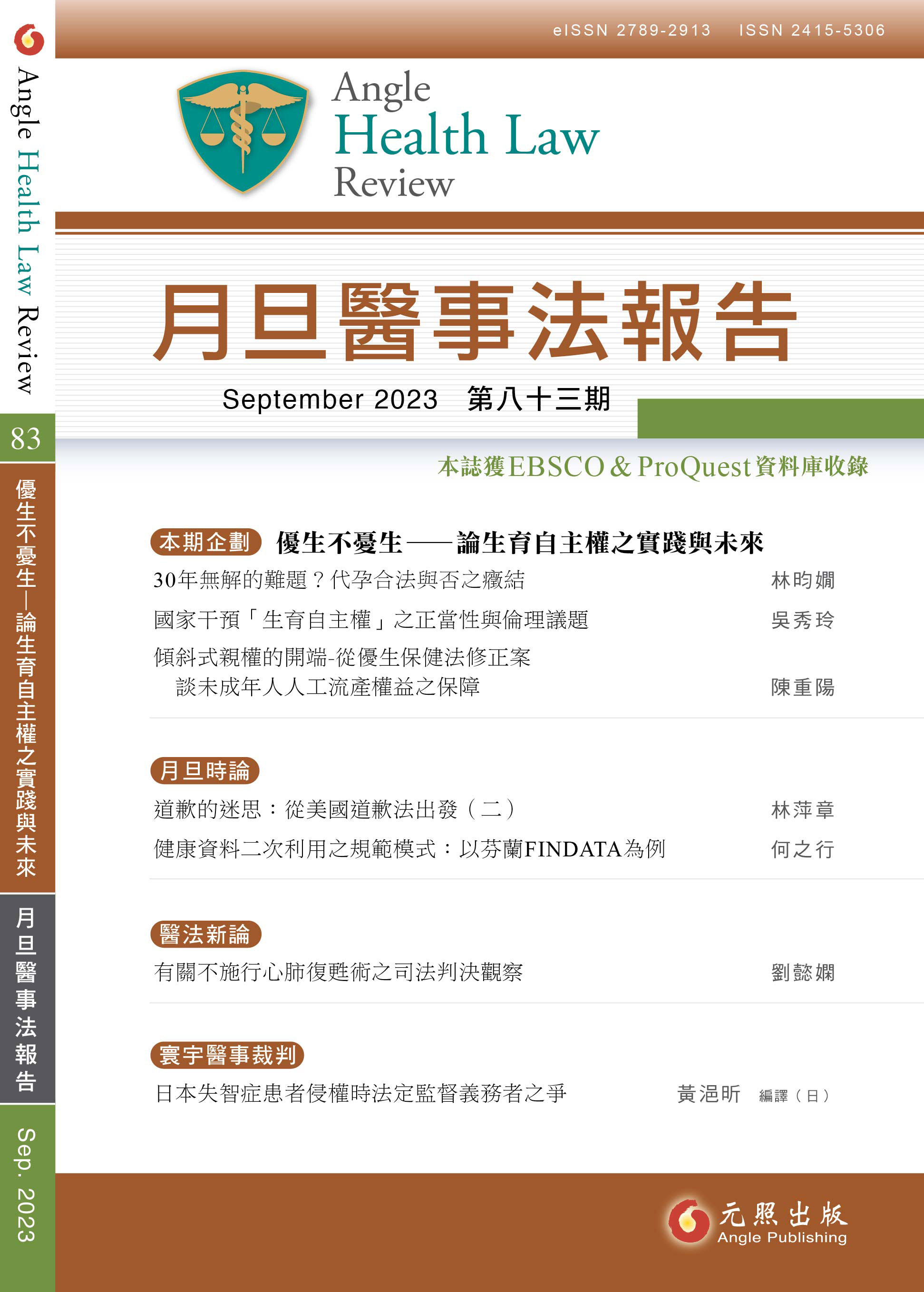道歉的迷思:從美國道歉法出發(二)【月旦時論】 試閱
Apology Law: Myth or Reality (II)
為保障醫病雙方權益、促進醫病和諧關係、改善醫療執業環境、確保病人安全、提升醫療品質,並建立妥速醫療爭議處理機制 ,立法院於2022年6月22日通過醫療事故預防及爭議處理法(下稱醫預法)。醫預法第7條及第23條皆提到道歉,並且為了鼓勵道歉的當事人,當事人所為遺憾、道歉、不利於己之陳述或讓步,除醫療爭議當事人均同意外,不得於本案訴訟採為證據或裁判基礎,亦不得採為相關行政處分之基礎。此乃台灣法律採用「道歉法」(Apology Law)之首次立法例,希望有效減少醫療爭議並避免使醫療事故進而成為訴訟事件,創造醫病雙贏之局面。美國道歉法大致分為兩類,完全保護和部分保護。完全保護道歉法保護表達遺憾和披露錯誤的陳述。但是,大多數州的道歉法都是部分保護道歉法,只保護表達遺憾,對錯誤披露沒有任何保護。道歉法的一個意想不到的效果是,它們可能會鼓勵或是提醒病人在不良事件發生後提起訴訟。因為,一旦病人意識到醫師犯了醫療錯誤,即使道歉本身不能作為證據,病人提出索賠的動機可能會增加。臺灣的醫預法的道歉條文第7條及第23條是採用美國部分保護道歉法。
In order to protect the rights and interests of both doctors and patients, promote a harmonious relationship between doctors and patients, improve the medical practice environment, ensure patient safety, improve medical quality, and establish a proper and speedy medical dispute resolution mechanism, the Legislative Yuan of Taiwan passed the “Medical accident prevention and dispute resolution act” (The Prevention Act) on June 22, 2022. Article 7 and Article 23 of this act both mention apology. American apology laws broadly fall into two categories, full protection and partial protection. Fully protection apology law protects statements that express regret and disclose errors. However, in most state apology laws are partially protected apology laws that only protect expressions of regret and have no protection against false disclosures. An unintended effect of apology is that it might encourage or remind patients to sue after adverse events. Because, once a patient realizes that a physician has made a medical error, the patient’s incentive to file a claim may increase, even if the apology itself is not evidence admissible. Article 7 and Article 23 of the apology provisions of The Prevention Act adopt the partial protection of the American apology law.
104-116






